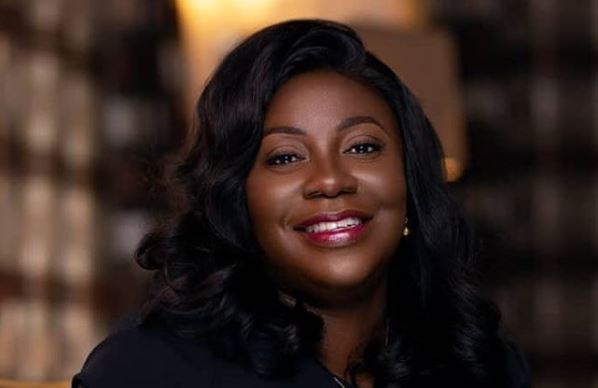Vodafone Ghana CEO Patricia Obo-Nai, has joined a host of African Leaders and international Community to share her thought of Africa’s Economic Recovery after COVID-19 at this year’s Bruegel Annual Meeting.
Bringing the private sector perspective on the panel, Patricia Obo-Nai disclosed that in March when the COVID-19 pandemic hit the country, her organisation partnered with the government and citizens to save lives.
“Our six-point plan included increasing network capacity by 60 percent to ensure people stayed connected as more folks worked from home.” Ms. Obo-Nai added the network saw a 50 percent increase in data traffic.
Aside putting devices in hands of health workers, Vodafone Ghana also set up a tele-centre which had 15 multilingual doctors helping citizens.
With a good number of Ghanaian students based at home since March and the Ghanaian president’s declaration that schools will reopen in January, 2021, she noted that Vodafone Ghana is already operating online educational support for students, scaled up the programme offering both global and local content so more students can access the Instant Schools platform at no data charge.
“Aggregated anonymized data, mobility insights and contact tracing apps all were deployed in the fight against COVID-19. In addition, the collaboration with the Ghana Statistical Services gave insights of population challenges and dynamics,” she said.
“We worked with the Central Banks to enhance financial inclusion. In many markets, we took the fees off when funds were transferred,” Ms. Obo-Nai added.
Other interventions by the telco include extending the tier limit with the Vodafone CEO indicating “it started with Safaricom in Kenya and now there are 8 operations in African markets with about 40 million customers and we have about $14 billion yearly transactions.”
Since the COVID-19 pandemic hit, about €100 million has been pumped in by the global telecommunication entity.
Speaking on the theme for the discussions, Madam Patricia Obo-Nai noted that governments and the private sector must work for economic recovery by looking at strengthening social resilience.
“The pandemic has impacted livelihoods, trade and economic growth. 25 million people in Sub-Saharan Africa are being pushed into poverty so there’s need for a deliberate effort by the private sector and government to rescue such people,” she noted.
According to Madam Obo-Nai, “this crisis is leading to rising unemployment and widening of the gap between the rich and poor as well as young and old.”
“For Africa, we have done the basic on mobile money usage but more work is being done for more people to venture into digital wallet, merchant payment etc. A billion dollars is spent yearly by Vodafone on network upgrades but infrastructure gaps with broadband require $80 to 100 billion which governments must do more to assist with,” she stated.
She stressed that with the COVID-19 pandemic, governments are tightening their budgets and restructuring sectors to receive governmental stimulus but there’s need for governments to work with the private sector to better manage the health crisis, contain the socio-political impact and aid economic recovery.
For her part, Former Liberian President, Ellen Johnson Sirleaf, observed that at the start of 2019, Africa was hailed as a rising continent and despite the Ebola outbreak in West Africa as well as acts of terrorism in the Sahel, the continent recorded growth.
“Decades of economic and political transformations earned the continent its credentials of a participant democracy,” she declared.
The UN World Economic Situational Prospect for 2019 put the GDP rising from 3.2 in 2018 to 3.4 in 2019 to 3.7 in 2020 with four of the largest growth countries being African.
Nonetheless 75 percent of 1.3 billion Africans face a bleak future because of rising population and limited resources which put great risk on sociopolitical stability of the states.
It is in the face of these threats that Madam Sirleaf welcomes the African Continental Free Trade Area (AfCFTA) which seeks to accelerate intra-African trade while boosting Africa’s trading
Earlier, Vice President Eastern and Southern Africa, World Bank Group, Hafez Ghanem, warned there was a decline regarding the GDP of most African states adding about 12.5 people of Africa fall in the poverty bracket where they face acute hunger.
He said since COVID-19 hit, many African states are losing huge revenue on commodity export with “Nigeria’s revenue falling by 70 percent because of a fall in oil prices.”
According to Mr. Ghanem, Island economies have also taken a hit such as Mauritius whose tourism sector has been greatly impacted by the pandemic. “In large economies like South Africa, industry has lost about 400,000 jobs,” he added.
Latest Stories
-
Sights & sounds from star-studded Guinness Accravaganza as Stonebwoy, AratheJay, others electrify patrons
12 minutes -
See how much MTN Ghana shareholders SSNIT, Ishmael Yamson, and Ebenezer Asante will get as profits
13 minutes -
Prof Raymond Atuguba: The visionary who transformed UG Law School
21 minutes -
Accravaganza: Guinness official cited in DJ Lord’s allegation against Stonebwoy
23 minutes -
The future of higher education: Is Africa ready for fully online universities?
30 minutes -
Contractor to resume work on stalled Ofankor-Nsawam road following fruitful discussions – Roads Minister
36 minutes -
Mrs. Mary Akweley Kuafoa Cobblah
42 minutes -
Reconstruction of Sunyani-Techiman-Wenchi-Wa-Hamile road to begin under “Big Push” initiative
45 minutes -
BlowChem and Belpak donate assorted products to Chief Imam to mark Eid-ul-Fitr
50 minutes -
Check out the 8 key bills Mahama signed into law
52 minutes -
Leverkusen stunned by third-tier Bielefeld in German Cup
56 minutes -
ECG missing containers: Energy Ministry seeks AG’s probe, possible legal action
59 minutes -
Tesla’s first-quarter deliveries slump on Musk backlash, weak demand
1 hour -
‘It is finished’- Finance Minister reacts as Mahama approves abolishing of e-levy and others
1 hour -
Prosecution amends charges against Ahmed Suale murder suspect
1 hour

